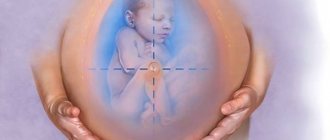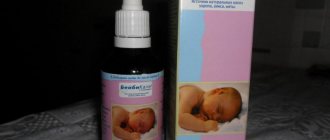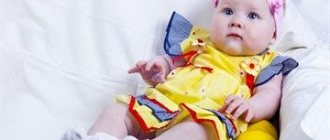WHO recommendations
Full breastfeeding does not involve supplementing the baby with food. According to WHO, mother's milk fully compensates for the baby's fluid needs. Its composition is as follows:
- water (88%);
- lactose (4.6%);
- fats (3.6%);
- proteins (3.2%);
- minerals (0.7%);
- less than 0.1% vitamins, hormones and other substances.
The amount of water in milk remains unchanged at all stages of lactation. At the same time, the concentration of other components may vary depending on the needs and requirements of the baby.
Mothers are interested: if the child does not drink water, what to do? They should understand the following. Milk is a completely adapted product, suitable for its proper development. It also contains sufficient amounts of water.
If for some reason it is not possible to organize breastfeeding, then when consuming formula milk, the newborn needs full supplementation.
Sometimes other situations arise. In some cases, during breastfeeding, a situation arises when the newborn needs to be given additional water.
Do I need to give my baby extra water?
According to most pediatricians, a healthy child up to 4-6 months of age does not need additional water. The baby receives fluid through breast milk. This is quite enough. But there are situations when it is necessary to increase the daily volume of fluid consumed.
For example, if a baby has severe diarrhea or vomiting, or an elevated body temperature, this can lead to dehydration. This is quite dangerous for the health and life of the child. To prevent this condition, it is recommended to give the baby water. The liquid must be of high quality.
Experts warn that excess water for children under 4 months of age can result in the following problems:
- malnutrition _ The stomach of newborns and infants is very small. Therefore, water reduces the amount of milk consumed. As a result, the baby receives an insufficient amount of nutrients for normal growth and development;
- disruption of the gastrointestinal tract. Water changes the baby's natural intestinal microflora. Along with such liquid, an infection can get in and a disease can develop;
- mineral imbalance . Water washes out not only poisons and toxins from the body, but also useful substances (for example, calcium, magnesium). This leads to disruption of metabolic processes;
- increased load on the urinary tract . When water is included in the diet, the kidneys begin to work more intensively. The newborn’s body is not ready for such a load.
When deciding whether to supplement your child's nutrition, you need to take into account what type of feeding he is on.
When breastfeeding
If the baby is breastfed, then he does not need supplemental feeding until he is six months old. Mother's milk consists of 85-90% water.
The rest is vitamins, microelements and other useful substances. Milk fully satisfies all the baby’s needs. Therefore, the baby does not need any other liquid.
But there are exceptions related to medical conditions. Supplementing with water while breastfeeding is possible if the baby is thirsty.
It is important for parents to organize an optimal microclimate in the children's room and dress their baby appropriately for the weather outside. Then the baby will not have a need for additional fluid.
With artificial feeding
Supplementation with water during artificial feeding is recommended. Feeding mixtures are prepared with water in a certain proportion.
It would seem that the child is receiving the volume of fluid he needs. But infant formula contains more protein than breast milk. Additional liquid is required to digest this element.
With the start of complementary feeding (inclusion of cereals in the diet), it is necessary to offer the baby water in small quantities. Because during this period there is a lack of fluid in the body.
With mixed feeding
Pediatrician Komarovsky notes that it is necessary to give the baby water during mixed feeding. The baby's diet consists of mother's milk and adapted formulas. For good digestion of such food you need more liquid.
If there is a lack of water in the baby’s body, constipation may occur and the functioning of the gastrointestinal tract may be disrupted. Parents are not able to understand whether the baby is thirsty or hungry.
Pediatricians recommend feeding a newborn on a schedule. If the child wakes up more often than planned, this may mean that he is thirsty. In order not to overfeed the baby and cause obesity, it is worth supplementing it with water.
When preparing an adapted mixture, it is important to strictly follow the instructions to ensure that the crumbs of the required amount of nutrients are delivered to the body for normal development and growth.
For neonatal jaundice
More than half of newborn children experience physiological jaundice. It develops as a result of the body’s adaptation to new conditions of existence. Signs of jaundice appear on the third day after birth. By the fifth day, symptoms become more pronounced, and then begin to gradually subside. By 2-3 weeks of life, physiological jaundice disappears.
In premature babies, this process can take about a month. There is no need to give your baby additional water. Excess bilirubin is eliminated from the body much faster if you give your baby breast milk.
Therefore, if physiological jaundice does not go away for a long time, then the doctor may recommend that the woman express milk and supplement the baby with it. This product has a laxative effect: harmful substances are excreted along with feces.
Physiological jaundice does not require specific treatment. If the yellowing of the skin and sclera of the eyes is pathological, then therapy must be carried out. Too high a bilirubin level poses a threat to the baby. Pathological jaundice can cause damage to nerve cells. To eliminate unpleasant symptoms, phototherapy is performed.
When exposed to light, bilirubin breaks down into non-toxic compounds and is excreted along with urine and feces. Phototherapy can cause dry skin. To speed up the release of harmful substances and prevent the development of dehydration, pediatricians recommend giving the child water.
Indications for supplementation
Mothers ask the question: what to do if the child does not drink water? Usually he does not need it unless there are any serious reasons.
Giving water to an infant under 6 months is allowed in the following cases:
- diarrhea or vomiting;
- high fever for several days;
- dehydration confirmed by a specialist;
- lack of a comfortable microclimate in the baby’s room.
Should newborns be given water when breastfeeding? The need to introduce fluid into the baby's diet may result from a woman's insufficient amount of breast milk. Only a specialist can determine this. In this case, additional soldering is carried out until the cause of this condition is eliminated.
If a newborn is dehydrated, supplementation should be provided. Usually the need for it manifests itself in the form of dry stools, restless sleep, insufficient urination and other reasons. Only a specialist should make the correct diagnosis.
If your baby is not drinking water, he may not need to. The frequency of feedings during breastfeeding should be determined according to the baby’s age and adjusted taking into account the individual characteristics of his body. If a newborn gets enough milk, he sleeps normally, gains weight and develops.
Limit your drink options
Inga: “Do not keep a large number of different drinks at home at the same time. We always have water, milk and some kind of juice (diluted with water in a ratio of 1:3).”
Maria: “We alternate milk, water and juice throughout the day. At the same time, dilute the juice with water in a 50/50 ratio. Children can drink the next drink only if the previous cup is already empty. Sometimes they turn this process into a game, competing to see who can drink all the water first.”
Antonina: “I make my son drink a glass of water before giving him another drink. The glass is quite small. This way you can control your fluid intake a little. He fulfills his duty, and we don’t have to argue with him and persuade him.”
External factors affecting additional soldering
The cause of a lack of fluid in a newborn’s body is often an unfavorable climate in the baby’s room. Humidity should be 40-60%. Temperature: 22-24 degrees.
Parents need to regularly ventilate the room where the baby sleeps, while avoiding drafts. It is also not recommended to sharply reduce the temperature. If the air in the room is too dry, you need to use a humidifier. Parents should know that excessive humidity is even more detrimental to the baby’s health than dryness.
It is important to properly arrange a newborn's room. It must maintain the correct microclimate, which is important for its health.
What to do if a newborn does not want to drink?
There are the following reasons why a baby refuses to drink:
a full stomach due to frequently consumed formula or breast milk;- sufficient intake of water into the body from the food consumed (breast milk largely consists of it);
- the baby does not like the taste of water;
- the method of giving drinks inappropriate for age, for example, when a newborn is given a bottle with a nipple that is too large;
- presence of illness;
- The water temperature is too cold or hot.
We invite you to familiarize yourself with Gifts for a 10 year old boy







